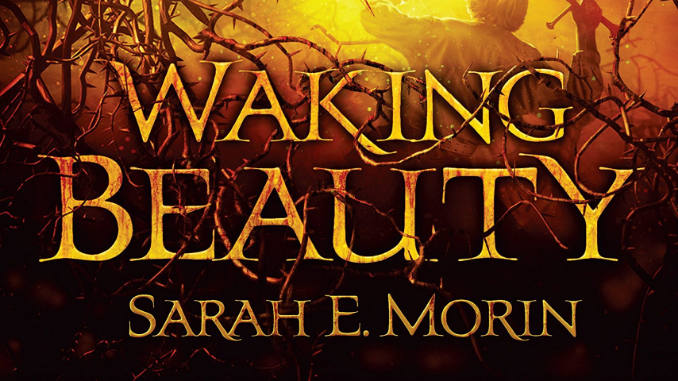
Published by Enclave Publishing on April 21, 2015
Genres: Christian, Fiction, Fantasy
Buy on Amazon
Goodreads

The rescue wasn't going at all how he planned. Prince Arpien intends to gain a throne and the sleeping beauty's heart with a single kiss that wakes her from the evil fairy's curse. But kissing the princess is only the beginning of a series of unforeseen obstacles: man–eating bugs, deadly spindles, talking lapdogs, and fiery pickles. The sleeping beauty is the biggest complication of all. Princess Brierly is beautiful and Fairy–Gifted, but also...daft. After one hundred years of sleep imprisonment, Brierly refuses to believe this rescue is anything more than a tantalizing but doomed dream. Arpien is drawn to the vibrancy beneath Brierly's indifferent exterior. Can they reclaim her kingdom? Do they dare trust in the Prince of the old tales to help them battle the evil fairy who cursed Brierly? What is the price of waking beauty?
Waking Beauty opens with a sardonic Sleeping Beauty parody, as Arpien finds his spindle-pricked princess more than a bit dusty. Love’s first kiss is a musty mess and Princess Brierly is certain she’s still sleeping and this is but another dream. Arpien does his best, going through the postures in which he’s been trained. He delivers the Fifth Stance of Bereavement for Distant Relatives and Especially Good Cooks when he tells Brierly that her betrothed (his great-grandfather) is a hundred years dead. He whisks a reluctant princess out into the courtyard to find that happily-ever-after isn’t going to happen. And that’s when the journey really begins.
After the first chapter, I wasn’t sure I was going to like Waking Beauty. The parody of fairy stories (fairody?) was clever enough, but I was convinced it could hold out for 400+ pages. Fortunately, while the clever tone and sarcastic reversals remain throughout the book, Morin blends it into the story in a way that seamlessly fits the narrative.
It’s such a unique story within a quite un-unique place. Waking Beauty covers all the classic tropes, but in a way that subverts the stereotype. Morin builds her fantasy world well, growing the world along with the plot, keeping readers on their toes as layer after layer is peeled back and you begin to see how Arpien’s rescue is related to the larger story at play. Morin manages the personal stories (especially Arpien and Brierly’s) even as she plays them into the larger story of fantasy world politics and military maneuverings and sets that in the backdrop of a grander thematic universe that makes her story much more than just a story.
I won’t give it away, but this is Christian fantasy fiction, so you can imagine that this fantasy world has its certain elements meant to be symbolic of Christianity. The Prince of Here and There, for instance, is a mythic figure within the myth of the book that has obvious connotations with Jesus. In most Christian fantasy fiction, the “God elements” are pretty cookie cutter and standard. Morin doesn’t disappoint, sticking with the standards but using her own mold.
Waking Beauty is, simply put, a masterpiece. It’s one part fairy fiction, two parts tongue-in-cheek parody, with a dash of symbolism and sarcasm for good measure. I give Morin the Fifth Posture of Awed Readers Reserved Only for the Very Best of Literature.



